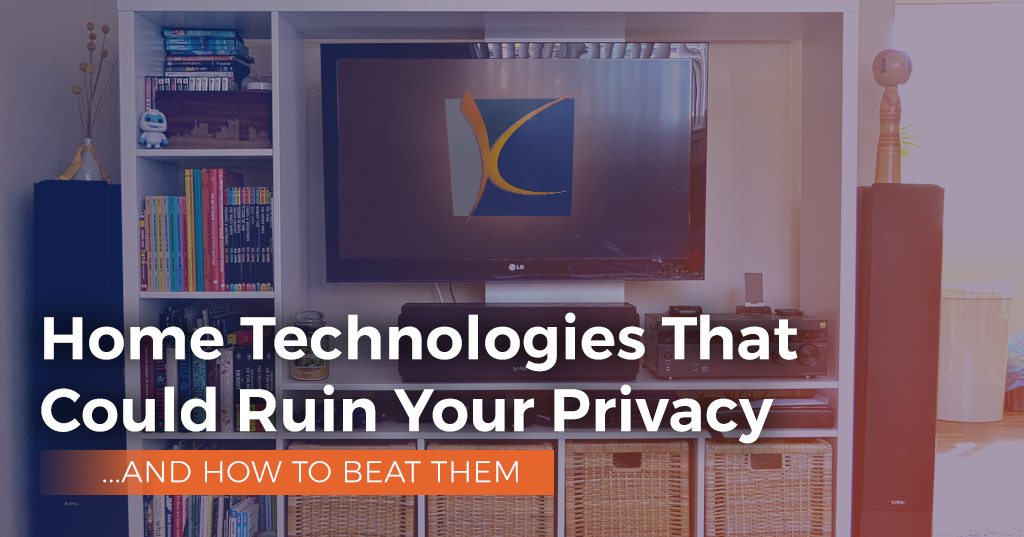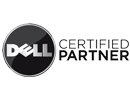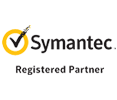
Home-Technologies-Privacy
Home Technologies That Could Ruin Your Privacy (And How to Beat Them)
Posted on March 5, 2018 in IT Security
In many ways, smart devices have made life more convenient and enjoyable. Today, you can ask the smart devices in your home to follow a temperature schedule, play music in any room, stream television shows and adjust lighting. You don’t even have to get off your couch to make your environment perfect for you.
Unfortunately, some home technologies put your privacy at risk. If you want to add smart devices to your home, make sure you know effective ways to prevent security and privacy risks.
The Government Can Hack Your Smart TV
In 2014, the CIA worked with British intelligence agency MI5 to develop TV malware called Weeping Angel that could infiltrate Samsung smart TVs. Unlike most television apps, Weeping Angel worked in the background to quietly collect information without the owner’s knowledge.
Weeping Angel poses a threat to homeowners because it has the ability to record audio and capture WiFi keys. Having access to your WiFi keys would make it easy for the government to access passwords, usernames and other sensitive data stored on a home network.
British and American intelligence agencies likely built Weeping Angel so they could spy on suspected terrorists. Considering that the agencies kept their projects secret, though, it’s impossible to know their ultimate objectives.
Assuming that you’re not involved in illegal activity, it’s unlikely that the CIA would try to use Weeping Angel against you. Still, it wouldn’t be the first time that the government abused its power to surveil citizens.
You can avoid Weeping Angel by updating Samsung smart TVs to the latest firmware. Keep in mind, though, that other malware may target the update and other smart televisions.
Old Insteon Products Make Hacking Easy
Insteon has been producing and installing home automation technology since 2005. Unfortunately for early adopters of the technology, Insteon products made before 2013 have vulnerabilities that practically anyone can take advantage of. It doesn’t even require basic hacking skills.
When journalist Kashmir Hill began researching Insteon’s products, she discovered that she could access many home networks without usernames and passwords. Insteon had even made it possible for Hill and others like her to find vulnerable systems through search engines.
After some tests, Hill discovered that she could control lights, garage doors, cameras and other devices. She even found some networks that contained sensitive information, including the names of children, the household’s nearest major city and IP addresses.
Avoiding the threat posed by Insteon products only requires buying newer versions. In fact, the company held a recall for the affected devices in 2013.
Computers Can Record Everything You Do or Say
Numerous viruses have the ability to turn your home computer or laptop into a surveillance device that records everything the device hears and sees. Hackers have used viruses to blackmail people caught doing things that they wouldn’t want released to the public.
Luckily, these security risks are easy to counter. If you have a computer with a built-in camera, put tape over the lens to prevent viruses from recording the things that happen in your home. If you have a separate camera, make sure you detach it from your computer when you don’t plan to use it.
You can take similar steps with microphones. Ideally, you should purchase computers that don’t come with built-in microphones. That way, you only need to unplug your external mic to prevent hackers from recording you. If your computer has an internal microphone, you can muffle the sound by placing tape over it. You can also disable the computer’s audio input hardware. Keep in mind, though, that you may not be able to use the internal microphone after you disable it.
Internet technology continues to change the way that people live. As long as you take the right precautions, you can enjoy the benefits of smart devices without losing your privacy.











